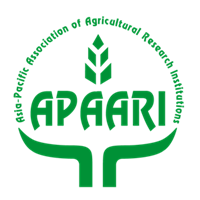Performance Indicators for Agricultural Innovation Systems in the ACP Region
This synthesis report presents the outputs of the workshop organised by CTA at its headquarters in Wageningen, The Netherlands, 15-17 July 2008. The outputs are presented in two main parts, each corresponding to one of the workshop objectives, and ends with a section on the way forward as suggested by the workshop participants. It also includes a first attempt to come to a consolidated generic framework on AIS performance indicators, based on the outputs of the different working groups. This is improved on the basis of feedback from workshop participants and their partners in ACP-countries and Europe during subsequent meetings and support for case studies on monitoring and evaluating contributions to innovation performance. The workshop involved 22 experts from 11 ACP countries, France and The Netherlands. CTA plans to organise follow-up workshops and support case studies to develop the process.
Related Resources
Workshop Report from the CGIAR Consortium CapDev Community of Practice Annual Meeting 2014
The 2014 Annual workshop of the CGIAR Consortium CapDev Community of Practice was held from September 10–12, 2014 at CGIAR Consortium Headquarters, Montpellier, France.The workshop was planned by a CapDev Convening Committee comprised of Iddo Dror (ILRI), Diana Brandes (Livestock...

Report on Prioritization of Demand-driven Agricultural Research for Development in Bangladesh
International Food Policy Research Institute (IFPRI) partnered with the Asia-Pacific Association of Agricultural Research Institutions (APAARI) in 2011 to conduct a series of policy dialogues on the prioritization of demand-driven agricultural research for development in South Asia. Dialogues were conducted...
Innovation and Growth: Rationale for an Innovation Strategy
This report discusses general innovation issues and how they are affecting economic growth. It emphasizes how the advances in ICT, biotechnology and other fields of science are changing the innovation landscape and what are the implications for CD.
Bringing the invisible into perspective
This reference document describes a comprehensive approach for planning, monitoring and evaluation of capacity and the results of capacity development processes. This capacity framework used centres around 5 capabilities (‘5Cs’) that together contribute to an organisation’s ability to create social...
Gender Equality in Rural Advisory Services
This brief explains the concept of gender equality in advisory services and discusses the opportunities that gender equality in rural advisory services can create for global and local food production, women’s economic empowerment, household food security, and nutrition. It summarises...


